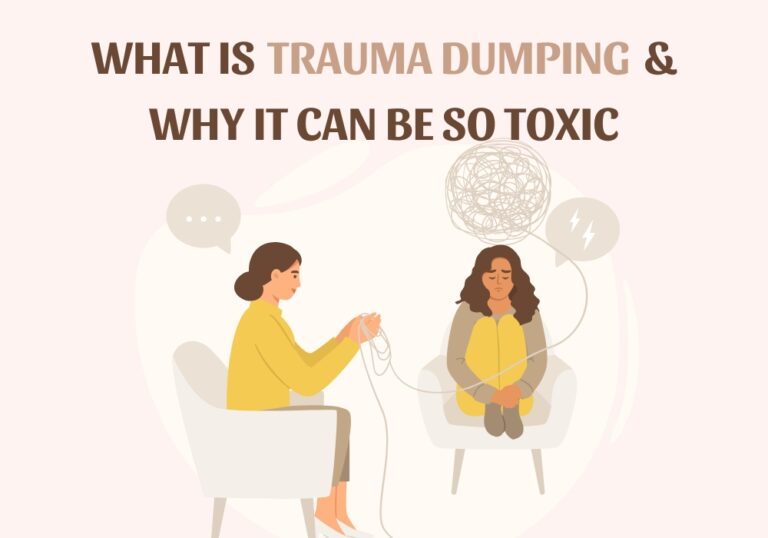In a world filled with constant social media distractions and never-ending notifications, solitude has been unjustly vilified. Many associate being alone with loneliness, isolation, or even failure.
However, for some, the idea of being alone may seem unfamiliar or even unsettling. Society also equals constant social interaction to happiness, making solitude seem something to avoid. But in fact, embracing your own business can lead to profound personal growth, emotional stability, and better mental and physical well-being.
Once you change your perspective and begin to appreciate solitude, you will realize that it is not an isolation, it’s a self-discovery, inner peace, and freedom. In this article, we will explore the transformative changes and things that Happen When You Start to Enjoy Being Alone. (If you are an introvert who already values solitude or a curious outgoing about its benefits, understanding these powerful changes can only inspire you to enjoy some quality time with the most important person in your life: YOURSELF.)
But first, you should know the difference between being alone and being lonely.
The difference between being alone and being lonely:
Being alone and being lonely is not the same thing. Being alone means being by yourself, which can be a peaceful and enriching experience. On the other hand, loneliness is a different emotional experience characterized by feelings of disconnection and isolation – and strangely you can feel lonely in a room full of people.
When you embrace solitude, you are given space to recharge, reflect grow, and develop yourself. In contrast, loneliness comes from the lack of significant connections with others – which leading to feelings of emptiness.
The big difference? Solitude is something you choose. loneliness is something that happens to you. For example, you can spend the weekend night alone with a good book and feel completely happy, while someone may be surrounded by friends, family but feeling completely alone inside.
What Happens When You Start To Enjoy Being Alone ?
Don’t forget that embracing solitude doesn’t mean you have to isolate yourself from others and avoid social interactions altogether. Rather, it is about experiencing calm, peace of mind, and satisfaction in those moments when you are alone.
When you start to enjoy solitude, you may experience the following positive changes in your life:
1-You Build Emotional Strength and Self-Awareness:
Passing time alone helps build emotional resilience, making it less dependent on others for validation and support. When people constantly surround you, it is easy to focus on their emotions while losing contact with yours. Solitude offers space to process your thoughts and feelings, helping you understand what really makes you happy, sad, or anxious.
Some research suggests that regular self-reflection strengthens emotional intelligence, allowing you to regulate emotions more effectively and even improve your empathy for others. Instead of seeking distractions, you learn to sit with your emotions, completely process them, and develop healthier coping mechanisms.
Actionable Tip: Try a “simple thought audit”-of 5 to 10 minutes a day, reflecting on your emotions without distractions. Over time, this practice will help you gain a deeper understanding of yourself, transforming solitude into a source of confidence and inner strength.
Related: How to Living Alone: 12 Tips for a Smooth, Happy Transition
2-You Develop Stronger Boundaries:
Being alone makes you know what drains or fills your energy. This enhanced awareness gives you the power to create more powerful boundaries and manage your time and emotions better. Instead of overstretching or obligating yourself to say, “yes,” you prioritize your peace by engaging only in relationships that add value and truly enrich your life.
Related: 7 Tips for Saying No Effectively
3-You Strengthen Your Decision-Making Skills:
Spending time alone helps you develop confidence in your own judgment, allowing you to make decisions without constantly seeking the approval of others.
When you embrace solitude, your choices are more aligned with your true desires rather than influenced by external opinions.
Research suggests that individuals who practice solitary reflection tend to make more attentive and confident decisions. In addition, the freedom to make decision without commitment reduces stress and improves the general satisfaction of life.
Actionable Tip: Try a “solo decision challenge”. Before asking for advice, spend 10 minutes listing the pros and cons of your options. This simple practice can help strengthen your ability to trust your own judgment.
4-You Enjoy Better Sleep and Enhanced Physical Well-Being:
Embracing solitude not only benefits your mind — but also positively affects your physical health. Without the constant noise of social interactions and digital distractions, your brain has a chance to relax, leading to better sleep and stress reduction.
Those who regularly enjoy alone time experience the best quality of sleep and even lower blood pressure.
By allowing moments of peace, you create an environment in which your body and mind can reload completely.
Actionable Tip: Establish a “quiet hour” before bed—turn off notifications, step away from social media, and engage in calming activities to promote restful sleep.
Related: Sleep Deprivation: Symptoms, Causes, & 10 Effects
Related: Insomnia: Symptoms, Causes & 10 Types
5-You Experience Reduced Stress and Improved Mental Well-Being:
Spending time alone can be a powerful tool for reducing stress and anxiety. Without the constant pressure of social expectations, your mind has the space to relax, recharge, and gain clarity. Solitude allows you to step away from external noise and focus on your inner world, leading to a greater sense of calm and emotional balance. Research shows that regular alone time can help lower stress levels and improve overall mental well-being.
Related: How to Deal With Anxiety: 15 Effective Methods
Related: Social Anxiety: Causes, Triggers, 11 Symptoms Explained
Related: 10 Effective Techniques to Reduce Stress
6-You Build Stronger and More Meaningful Relationships:
Spending time alone can actually improve your relationships. When you take the time to understand yourself, set boundaries, and build confidence in your own company, you bring a more self-aware and fulfilled version of yourself into your interactions. Instead of seeking relationships out of loneliness, you form connections based on genuine compatibility. This leads to deeper, healthier, and more meaningful bonds.
Studies suggest that people who practice solitude develop stronger emotional intelligence, which enhances relationship quality.
Related: 12 Signs Of An Unhealthy Relationship
Related: 18 Signs of Manipulation in a Relationship
7-You Strengthen Your Sense of Purpose and Discover Hidden Passions:
Spending time alone gives you the clarity to reflect on your true goals, values, and aspirations. Without the distractions of daily life or outside influences, you gain a deeper understanding of what truly fulfills you. Solitude also sparks self-discovery, allowing you to explore new passions and interests you may have never considered. Whether it’s painting, writing, or learning a new skill, alone time helps you unlock creativity and personal growth.
Actionable Tip: Start a Solitude Journal to track your reflections, goals, and newfound interests. Writing things down helps you stay connected to your purpose and recognize patterns in what genuinely brings you joy.
Related: 11 Powerful Ways To Find Your Passion in Life
Related: Why do I never feel passionate about anything?
Related: 20 Fun Things To Do Alone At Home
8-You Strengthen Your Independence:
When you learn to enjoy being alone, you naturally become more independent and self-reliant. Instead of constantly seeking external validation or relying on others for decision-making, you begin to trust your own judgment and capabilities. This newfound independence fosters resilience, allowing you to handle life’s challenges with greater confidence and clarity.
Spending intentional time alone also enhances problem-solving skills. Without the influence of outside opinions, you gain the freedom to think critically, reflect deeply, and make decisions that align with your true desires. Over time, this self-sufficiency leads to higher self-esteem and emotional stability, making you feel more empowered in both your personal and professional life.
9-You Boost Your Focus and Strengthen Your Memory:
Spending time alone can significantly enhance concentration and memory. When working in a group, it’s easy to rely on others to retain information, a psychological phenomenon known as “social loafing.” This reduces individual effort and focus. However, when you engage in tasks alone, your brain is forced to process and retain information more efficiently.
Solitude allows for deeper concentration by minimizing distractions and external influences. This focused attention strengthens cognitive functions, improving recall and long-term memory retention. Whether studying, problem-solving, or engaging in creative work, spending time alone gives your brain the space it needs to absorb and process information effectively.
Related: 15 Natural Ways To Improve Your Memory Today!
Related: How To Improve Mental Clarity? 16 Ways to Achieve It
10-You Feel More Content and Fulfilled:
Once you embrace being alone, you begin to understand that fulfillment doesn’t come from constant social validation but from within. Solitude allows you to appreciate the present moment, enjoy your own company, and cultivate a deeper sense of self-worth. Over time, you realize that you don’t need external distractions to feel happy—you can create joy on your own.
Research found that individuals who seek solitude intentionally experience greater life satisfaction and emotional balance.
Actionable Tip: At the end of each day, write down three things you enjoyed about your alone time to reinforce the positive aspects of solitude.
Related: How to Be Happy Alone: 20 Practical Tips to Embrace Solitude

Conclusion:
Enjoying alone time is about personal growth and empowerment, not isolation.
By embracing solitude, you gain emotional intelligence, creativity, better relationships, and a greater sense of purpose.
Are you ready to spend and enjoy more time alone? Start today and see how solitude can transform your life!








